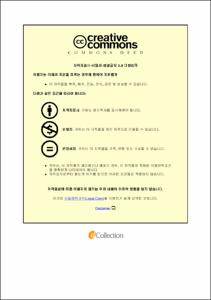직장인의 개인적 특성, 창업역량 및 직무만족이 창업의지에 미치는 영향
= The Effects of Personal Characteristics, Entrepreneurship Competency and Job Satisfaction on Entrepreneurial Intentions
- Appears in Collections:
- 지식서비스&컨설팅학과 > 1. Thesis
- Files in This Item:
-
-
Download
 200000499474.pdf
기타 데이터 / 822.19 kB / Adobe PDF
200000499474.pdf
기타 데이터 / 822.19 kB / Adobe PDF
-
Items in Repository are protected by copyright, with all rights reserved, unless otherwise indicated.